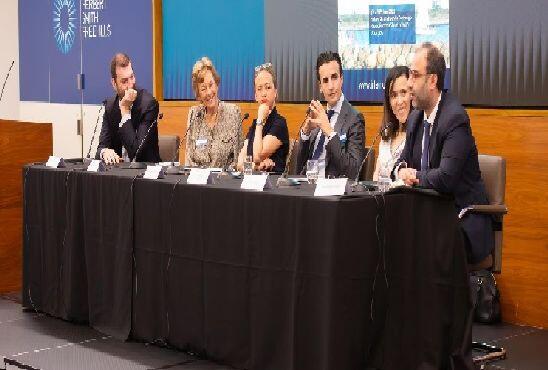
The City of London played host to the 6th Annual Conference on Energy Arbitration and Dispute Resolution in the Middle East and Africa on the 27th and 28th of June 2023. Participants at this two-day event included government officials, legal practitioners, diplomats, and academics from around the world.
During the first day of the conference, a distinguished lineup of speakers captivated the audience with their insights. Lise Boseman set the stage, delving into the complex realm of Investor-State Dispute Avoidance. According to Boseman, a state’s national laws must be aligned with its international investment obligations and cohesion.
The next speaker, Dr Glenn George, discussed the prevailing global energy mix, which remains heavily dependent on fossil fuels. Dr George emphasized that renewable energy sources still require a large quantity of rare earth elements, despite their impressive progress.
A prominent figure in the field, Khawar Qureishi KC, shared his invaluable experience in representing investors and states in Africa. According to Qureishi, a delicate balance must be struck between protecting foreign investors and safeguarding the legitimate interests of states. Drawing from his experiences, he highlighted the need for strategic decision-making.
A riveting panel discussion featuring Emilia Onyema, Dr. Victoria Nalule, Kirtan Prasad, and Sanjeev Bahl sparked a lively debate about whether green energy production for export is the best policy for African countries. The panellists stressed the potential for job creation as well as the need to assist domestic markets. However, they also emphasised the importance of modernising household grids and establishing appropriate grid infrastructure.
Daniel Correa emphasised the importance of early instruction during arbitration since it provides for a quick knowledge of the project, claims, and positions of the parties concerned. This enables courts and tribunals to issue well-informed and concise opinions.
Another panel, which included Yolanda Walker, Paul Sills, Jide Adesokan, Luis Martinez, Duncan Bagshaw, and Martin Burns, discussed dispute resolution strategies in African energy infrastructure projects. The panellists offered their knowledge, giving light on various conflict resolution solutions.
The day concluded with a stimulating discussion involving Victoria Kigen, Daniel Wilmot, Gillian Lemaire, and Steve Finizio. The panel centred around Queen Mary’s University London and Pinsent Masons survey on international energy arbitration’s future. Interestingly, the survey revealed that 27% of respondents predicted increased energy disputes in Africa, making it the region most likely to experience such disputes.
Day two of the conference focused on the Middle East and North Africa region. The panel discussion, led by Jamie Trinidad KC, Lady Olga Maitland, Laurence Franc-Menget, Tarek Eltumi, Rym Loucif, and Ahmed Abdel Hakam, explored various risks and challenges faced by states and investors in the region. Attention was drawn to the rise of sham claimants targeting states and the need to adapt to the shifting geopolitical landscape.
The conference continued with an engaging conversation between Clarissa Coleman, Cherine Ghali, Dan Turner, and Lindy Patterson. They deliberated on the crucial decision of choosing the arbitration seat for MENA disputes. The panellists emphasised the significant impact the seat has on the choice between civil and common law systems, document disclosure, and case funding.
Craig Tevendale’s keynote speech was the day’s high point. He brought light on the frightening Energy Trilemma. This entails striking a delicate balance between ensuring a consistent energy supply, lowering prices, and minimising environmental effect.
The final panel, which included Professor Peter Cameron, Michael Patchett Joyce KC, Vivek Kapoor, Deger Boden, and Naomi Bariercliffe, focused on the evaluation of Middle East Investment Treaties relating to oil and gas investments and climate change. The panellists provided useful insights towards understanding the intricate interplay between these critical factors.
The conference concluded with a riveting discussion led by Asel Housan, Charlie Morgan, and James M. Turner KC. The discussion focused the role of Artificial Intelligence (AI) in driving productivity and research within the legal field. While AI is already playing a substantial role in large law firms, the panellists were sceptical of its potential as a decision-maker in conventional dispute resolution. The future of AI in this domain will ultimately depend on the evolution of disputes and changes in business practices.
The 6th Annual Conference on Energy Arbitration and Dispute Resolution provided a valuable forum for specialists from around the world to share their knowledge and perspectives, and provided attendees with enhanced knowledge of the complex terrain of energy arbitration and dispute resolution.














